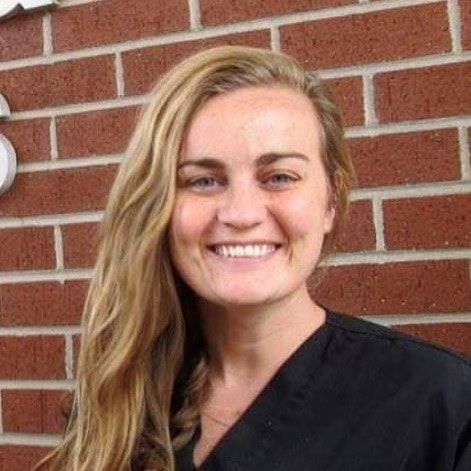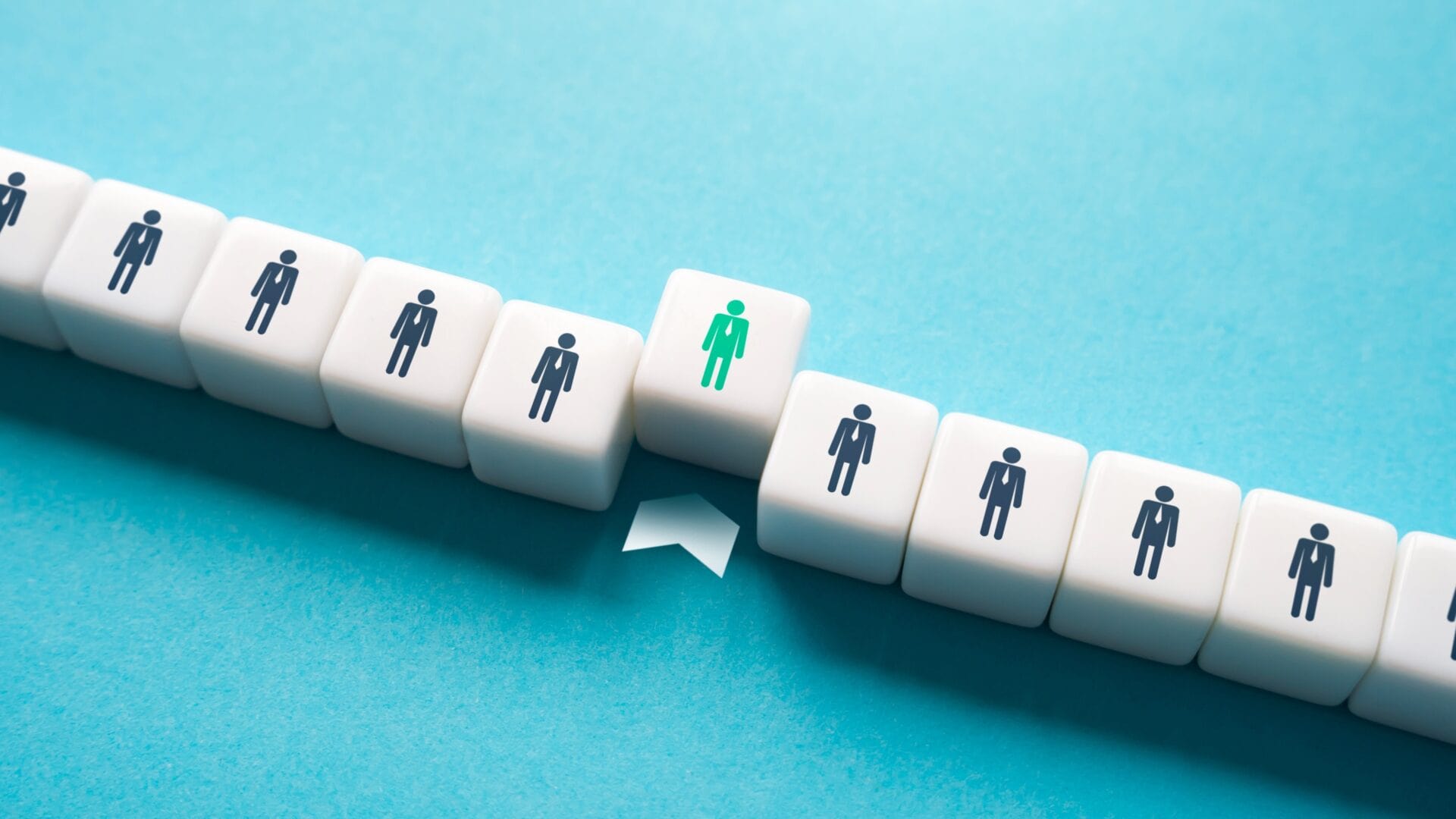Welcome to the national Student Academy of Audiology (SAA) Pathways to Audiology Interview Series! While many audiologists come from a Communication Science Disorders (CSD) background, others have taken different pathways to the field. In this series, the national SAA will interview both audiologists and AuD students who have or are taking non-traditional routes into the profession of audiology.
Our next interview is with Sarah Jones, AuD.

Q: Give us a brief description of yourself, your pronouns, your official title, where you are currently working, etc.
Hi! My name is Sarah Jones (she/her/hers). I am a Pediatric Audiologist in South Georgia. I work for the Georgia Department of Education- under the Georgia Mobile Audiology Program. I provide diagnostic hearing testing for children in Georgia from birth to 22 years of age. All testing is provided at no cost to families.
Q: Where did you receive your bachelor’s and AuD (or PhD)?
My journey to audiology is a little different than most. I received my bachelor’s degree in history from the University of Georgia (UGA) (Go Dawgs!). While at UGA, I took American Sign Language as my foreign language and had several opportunities to observe at residential schools for the Deaf in our state. From these experiences, I became interested in Deaf Education and then pursued my master’s degree in Deaf and Hard of Hearing Education from Valdosta State University. While teaching, I became interested in audiology and went back to school to become an audiologist. I graduated from the University of South Florida in May 2021 with my Doctor of Audiology degree.
Q: What made you want to become an audiologist, with focuses in mobile and teleaudiology?
I became interested in becoming an audiologist while working as a Teacher of the Deaf in the public school system. One of my biggest concerns was that so many of my children struggled to read on grade level- stemming from late diagnosis and lack of enrollment in early intervention. This inspired me to become an audiologist in hopes that I could provide timely diagnostic testing to babies. I specifically became interested in mobile and teleaudiology because of the access it provides to children in my state. For a long time, healthcare has been done one way. We have expected individuals (regardless of where they live or their ability to travel) to make long trips across the state to access care for their children. We have seen this method fail repeatedly. When we bring care to families, we break down barriers associated with transportation and finances.
Q: What does your day entail doing mobile/teleaudiology?
Every day is a little bit different! Our tele-clinics are used for infant diagnostics and are facilitated via Zoom. I start the Zoom meeting from my office at home and will connect with the testing assistant who is with the family (most of our clinics are at health department sites within the family’s community). Once on Zoom, I can remote into the assistant’s computer and control all testing. I start the appointment by introducing myself and taking a brief case history. I then explain the appointment and what to expect to the family. The test assistant sets the baby up for testing (cleans the skin, attaches electrodes, etc.). Once the infant is set-up, I begin testing remotely. For ABRs we use Vivosonic and for OAEs and tympanograms we use the Titan. Both are easily controlled remotely. After testing, I review all the results with the family. I will then write my report and send it to the family as well as their pediatrician.
Q: What classes or additional education would you suggest for students wanting to pursue teleaudiology?
Audiology is changing so much, and I think that is great! I cannot think of a certain class that might provide a better insight to teleaudiology (but maybe programs should start to think about including something like this as the landscape of healthcare continues to change). One thing I think students who are interested in teleaudiology can do is to look for externship and clinical placements that offer some of these opportunities. There isn’t one way to do to teleaudiology, so I think getting experience from as many settings as possible is key.
Q: What opportunities do you remember from your educational career that helped you solidify your interest in mobile and teleaudiology?
I went to school in the middle of the COVID-19 pandemic. We all had to abruptly stop our third-year externship placements and wonder what our careers would look like. Thankfully, I was able to start my externship at the University of South Florida on time. We quickly had to pivot and figure out how to provide care to our patients, while also keeping them safe. This led to a lot of new infection control precautions, social distancing, and remote programming appointments. I think if we can point to one positive out of the COVID-19 pandemic, it would be that it kickstarted telehealth in a lot of places.
Q: What kind of clinical placements would you suggest to a student wanting to go into teleaudiology?
Teleaudiology can really be done anywhere. However, I think looking at placements within public health agencies, universities, and educational placements in rural communities may provide the best access to teleaudiology experiences. Public health and educational settings are often tasked with reaching people that no one else has been able to. Due to this, they often get more creative with reaching patients. I would also encourage students and young audiologists to pitch ideas for teleaudiology programs within their experiences–you never know what might happen or what you might start.
Q: What do you know now that you wish you knew when you were deciding to go into teleaudiology?
You can be as prepared as possible, but things can still go wrong! Teleaudiology relies heavily on technology and strong internet connections. Technology is such a gift to us and is usually our friend, but sometimes things happen beyond our control. Do all the work upfront to prevent a problem, but also give yourself grace if something goes wrong and know you cannot control everything. Sometimes (rarely) we must reschedule appointments due to technology. Its not fun, but it happens.
Q: Is there anything else you want to say or suggest to students considering going into teleaudiology, or audiology in general?
Be open to new opportunities and ideas. Say “yes” to experiences even if you aren’t sure, it is something you want to do or our interested in. School is not all about getting good grades but is also about experiencing audiology and figuring out what you want to do as an audiologist. I can attribute a lot of my career opportunities to things I volunteered to do as a student. Finally, stay involved, you are the future of audiology and have the ability to shape the field.
Related Posts
National SAA Board & Volunteer Opportunities–Your Next Big Step Starts Here
Thinking About Getting Involved? If you’ve ever thought, “I’d love to do more with national SAA, but…” — this is your sign to go for it. Whether you’re swamped with classes or unsure about stepping into leadership, you’re not alone. But here’s the truth: national SAA needs passionate, curious, and committed students like you to…
Lead with Intention: Networking, Wellness, and the Case for Self-Advocacy
Embracing topics such as networking, mental wellness, and self-advocacy are pivotal to setting yourself up for success as a student. While these topics can be scary, there are many resources out there to help you address any concerns you may have. And hopefully, the following tips will help you feel more confident in your own…
Helping Students Build Their Professional Network in Audiology
For many students, the word networking can feel intimidating—evoking images of awkward small talk and high-stakes conversations with seasoned professionals. As advisors, you play a pivotal role in demystifying this process and empowering students to build meaningful connections that can shape their careers. Early networking is essential for students seeking externships, job placements, and volunteer…




